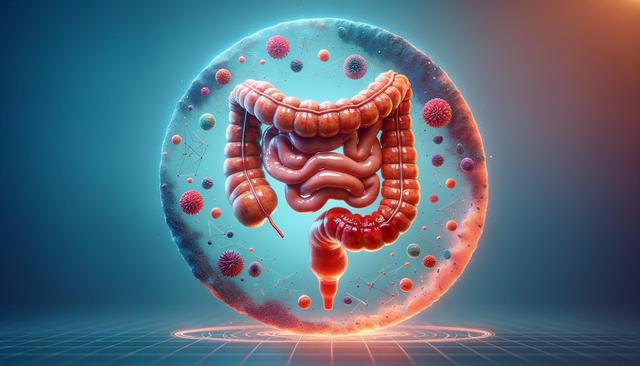What Is Ulcerative Colitis?
Ulcerative colitis is a form of inflammatory bowel disease (IBD) that primarily affects the inner lining of the large intestine (colon) and rectum. This condition causes inflammation and the formation of ulcers, leading to symptoms such as abdominal discomfort, diarrhea, and rectal bleeding. Unlike other types of IBD, such as Crohn’s disease, ulcerative colitis is typically limited to the colon and does not affect the deeper layers of the intestinal wall.
The exact cause of ulcerative colitis remains unclear, but it is believed to result from a combination of genetic, environmental, and immune system factors. When the immune system mistakenly attacks healthy cells in the digestive tract, it triggers ongoing inflammation. Some individuals may have a genetic predisposition to the disease, while others might experience symptom flare-ups due to environmental triggers such as diet, stress, or infections.
Common Symptoms and Diagnosis
The symptoms of ulcerative colitis can vary in severity and may develop gradually or occur suddenly. Some individuals experience periods of remission when symptoms disappear, followed by flare-ups. Common symptoms include:
- Persistent diarrhea, often with blood or pus
- Abdominal pain and cramping
- Urgent need to defecate
- Fatigue and weight loss
- Fever in more severe cases
Diagnosing ulcerative colitis typically involves a combination of tests. Physicians may perform blood tests to check for signs of inflammation or anemia. Stool samples help rule out infections. Imaging tests like CT scans or MRIs can provide a detailed view of the colon. However, the most definitive diagnostic tools are endoscopic procedures such as colonoscopy or sigmoidoscopy, which allow doctors to directly view inflammation and take tissue samples for biopsy.
Treatment Options for Managing the Condition
There is currently no cure for ulcerative colitis, but various treatments aim to reduce inflammation, manage symptoms, and maintain long-term remission. Medications are often the first line of treatment and may include:
- Anti-inflammatory drugs such as aminosalicylates
- Immunosuppressants to reduce the immune system’s activity
- Biologic therapies targeting specific pathways in the immune response
- Antibiotics in cases where infections are present
In more severe cases, or when medications do not provide relief, surgery may be considered. This usually involves removing the colon and rectum and creating a new way for waste to leave the body, such as an ileostomy or an internal pouch.
Diet and Lifestyle Considerations
While diet does not cause ulcerative colitis, certain foods can exacerbate symptoms during a flare-up. Maintaining a food diary can help identify triggers. Many individuals find relief by avoiding:
- High-fiber foods that may irritate the colon
- Dairy products, especially during flares
- High-fat or fried foods
- Alcohol and caffeine
Alongside dietary adjustments, lifestyle changes can also help manage the condition. Regular exercise, stress reduction techniques such as mindfulness and yoga, and staying hydrated are beneficial. It’s also important to take prescribed medications consistently and attend regular follow-up appointments with healthcare providers.
Living with Ulcerative Colitis
Living with a chronic condition like ulcerative colitis involves both physical and emotional challenges. During remission periods, many people can lead active lives with few disruptions. However, flare-ups can impact work, social activities, and general well-being. Establishing a support system, whether through family, friends, or patient advocacy groups, can make a significant difference in coping with the condition.
Many individuals benefit from counseling or therapy to manage the emotional impact of chronic illness. Educational resources and patient forums can also provide valuable insights and encouragement from others facing similar challenges. Open communication with healthcare providers ensures that treatment plans remain effective and responsive to changing needs.
Despite its chronic nature, ulcerative colitis is a manageable condition. With the right combination of medical care, lifestyle changes, and emotional support, individuals can maintain their quality of life and reduce the frequency and severity of symptoms.
Conclusion: Supporting a Balanced Life with Ulcerative Colitis
Ulcerative colitis may be a lifelong condition, but with appropriate treatment, informed lifestyle choices, and a reliable healthcare team, individuals can manage their symptoms and enjoy a fulfilling life. Understanding the disease, staying proactive about treatment, and seeking support when needed are key steps in maintaining overall well-being.












